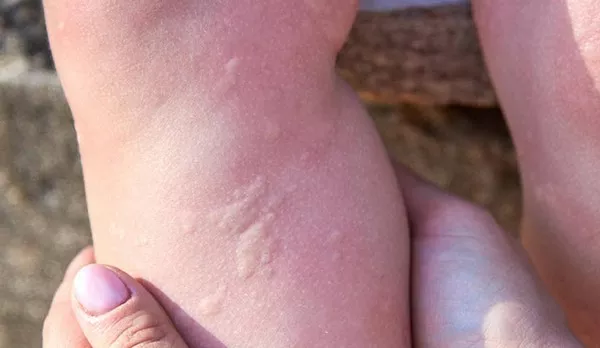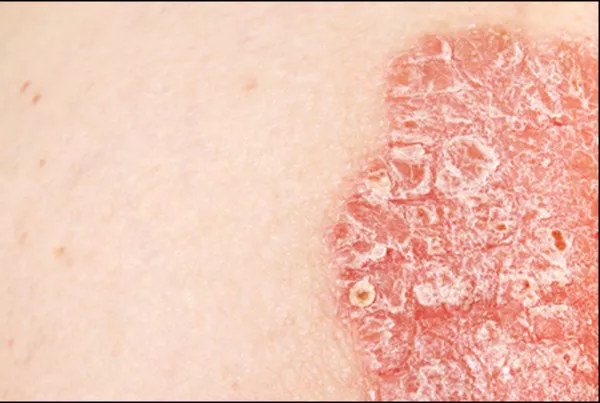Hives, medically known as urticaria, are a common skin condition characterized by raised, red, and itchy welts. They can appear suddenly and often disappear within a few hours or days. While hives are usually harmless and temporary, there are instances where they may signal a more serious underlying condition. Understanding when hives are a concern is crucial for proper diagnosis and treatment. In this article, we will delve into the various causes of hives, their symptoms, and when to seek medical attention.
What Are Hives?
Hives manifest as red, itchy welts on the skin that vary in size and shape. They can appear on any part of the body and may come and go over a period of time. The appearance of hives is often accompanied by itching, burning, or stinging sensations. In some cases, hives may be accompanied by swelling of the lips, tongue, or throat, which can lead to difficulty breathing—a condition known as angioedema.
Causes of Hives
Hives can be triggered by a variety of factors, including:
1. Allergic Reactions: One of the most common causes of hives is an allergic reaction to certain foods, medications, insect stings, or environmental allergens such as pollen or pet dander. When the body’s immune system reacts to these allergens, it releases histamine, a chemical that causes the characteristic symptoms of hives.
2. Infections: Certain infections, such as viral or bacterial infections, can also trigger hives. These infections may directly affect the skin or stimulate the immune system, leading to the release of histamine.
3. Physical Stimuli: Exposure to certain physical stimuli, such as pressure, cold, heat, or sunlight, can trigger a type of hives known as physical urticaria. In these cases, the hives typically develop in the area of the skin that has been exposed to the stimulus.
4. Stress: Emotional stress or anxiety can sometimes exacerbate hives or trigger their onset. While the exact mechanism is not fully understood, stress is believed to affect the immune system and increase inflammation, which can contribute to hives.
5. Underlying Medical Conditions: In some cases, hives may be a symptom of an underlying medical condition, such as thyroid disease, autoimmune disorders, or chronic infections like hepatitis or HIV.
When Are Hives a Concern?
While hives are often harmless and resolve on their own, there are certain circumstances in which they may indicate a more serious underlying condition. Here are some signs that suggest hives may be a cause for concern:
1. Persistent or Recurrent Hives: If hives persist for more than six weeks or recur frequently, it may indicate a chronic condition known as chronic urticaria. Chronic hives can significantly impact a person’s quality of life and may require medical intervention to manage symptoms.
2. Severe Symptoms: Hives accompanied by severe symptoms such as difficulty breathing, swelling of the face or throat, dizziness, or fainting require immediate medical attention. These symptoms may indicate a severe allergic reaction known as anaphylaxis, which can be life-threatening if not treated promptly.
3. Associated Symptoms: Hives accompanied by other symptoms such as fever, joint pain, muscle weakness, or fatigue may be a sign of an underlying medical condition that requires further evaluation by a healthcare professional.
4. Underlying Medical Conditions: If hives are recurrent and not clearly associated with an identifiable trigger, it may indicate an underlying medical condition such as thyroid disease, lupus, or rheumatoid arthritis. In these cases, a thorough medical evaluation is necessary to identify and treat the underlying cause.
5. Impact on Daily Life: If hives significantly impact a person’s daily life, causing discomfort, embarrassment, or interference with work, school, or social activities, it is important to seek medical attention for symptom management and support.
SEE ALSO: What Are Natural Remedies for Hives
Diagnosis and Treatment
Diagnosing the underlying cause of hives typically involves a thorough medical history, physical examination, and possibly allergy testing or blood tests to identify triggers or underlying medical conditions. Treatment for hives often involves a combination of lifestyle modifications, avoiding triggers, and medications to relieve symptoms and prevent recurrence.
1. Antihistamines: Antihistamine medications are commonly used to relieve itching and reduce the severity of hives. They work by blocking the effects of histamine, thereby reducing inflammation and itching.
2. Corticosteroids: In cases of severe or persistent hives, corticosteroid medications may be prescribed to reduce inflammation and suppress the immune response. However, long-term use of corticosteroids can have side effects and is generally reserved for short-term use in severe cases.
3. Epinephrine: In cases of severe allergic reactions or anaphylaxis, epinephrine may be administered to rapidly reverse symptoms and prevent life-threatening complications. Individuals with a history of severe allergic reactions should carry an epinephrine auto-injector with them at all times and know how to use it in case of emergency.
4. Identifying Triggers: Identifying and avoiding triggers is an essential part of managing hives. Keeping a diary of symptoms and potential triggers can help identify patterns and minimize exposure to allergens or other triggers.
5. Lifestyle Modifications: Making lifestyle changes such as avoiding tight clothing, practicing stress-reduction techniques, and maintaining a healthy diet and exercise routine can help reduce the frequency and severity of hives.
Conclusion
Hives are a common skin condition that can be triggered by a variety of factors, including allergies, infections, physical stimuli, stress, and underlying medical conditions. While hives are usually harmless and temporary, they may indicate a more serious underlying condition in some cases. It is important to recognize when hives are a cause for concern and seek medical attention if symptoms are severe, persistent, or accompanied by other symptoms. With proper diagnosis and treatment, the symptoms of hives can be effectively managed, allowing individuals to lead a healthy and active life.
Related Topcis:

























